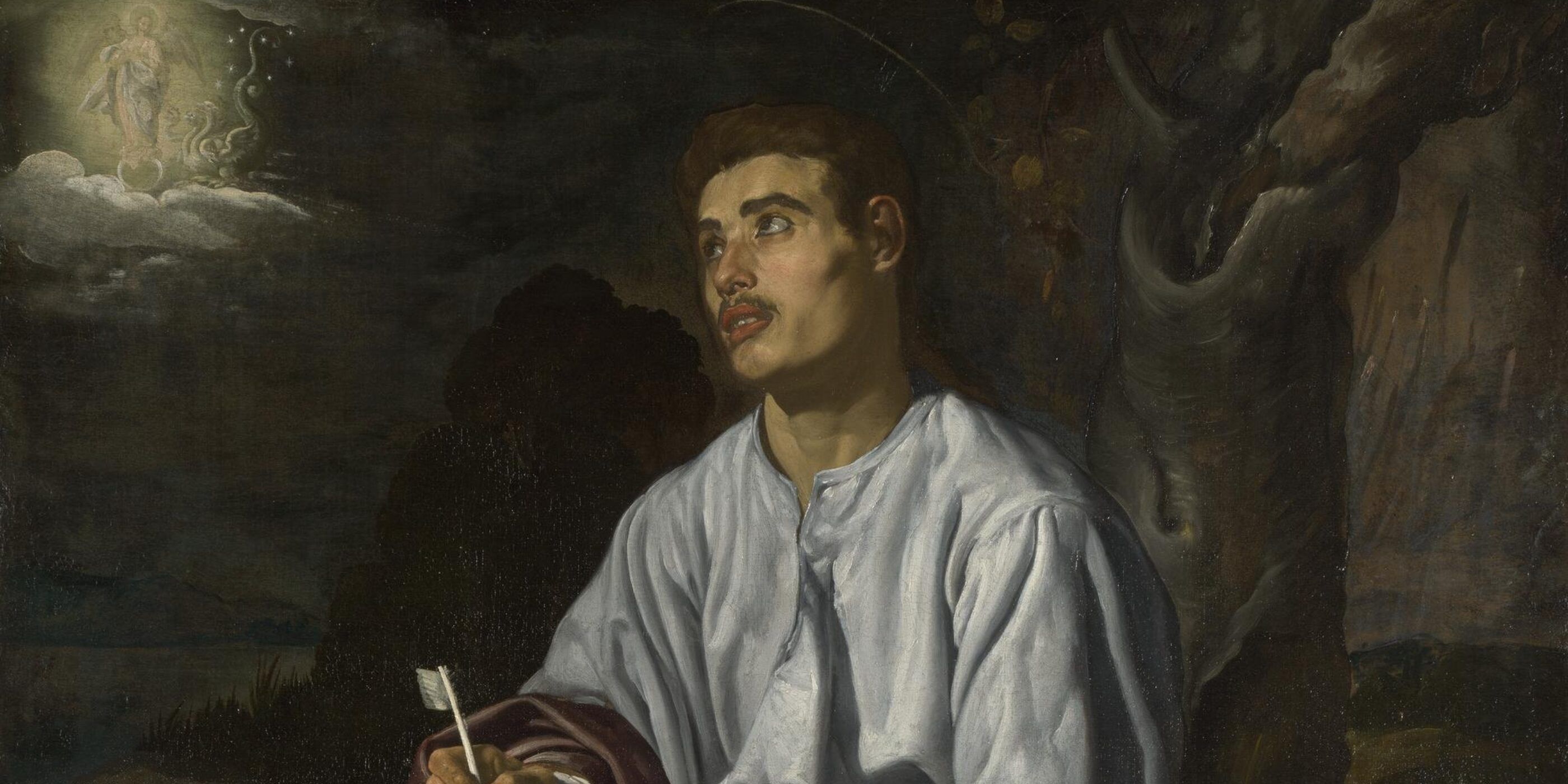By: Dr. Anthony Coleman
Director of MAM/MTS Degree Programs
Saint John’s Seminary
Rather than provide a brief meditation on the solemnity of our Lord’s Nativity this month, as many no doubt will, I thought it rather appropriate to focus instead on the saint whose feast day falls two days after Christmas; namely, St. John the Evangelist, the patron saint of our seminary here in the Archdiocese of Boston.
While St. John is also often referred to as St. John the Apostle, a more typical title in eastern Christianity for St. John is the Theologian. The reason for this is noticed immediately by anyone who has read all four Gospels. St. John’s Gospel is different from those of Ss. Matthew, Mark, and Luke; i.e., the synoptic Gospels. Whereas the latter seem to mirror a more typical biographical account according to the standards of the time, St. John’s Gospel is more concerned with the meaning of Jesus’ actions, about what his actions tell us about his person and work. For example, St. John’s Gospel only mentions seven miracles during Jesus’ earthly ministry, compared with 22 or more miracles in each of the other Gospels. Further, Jesus speaks much more voluminously in St. John’s Gospel than in the synoptic Gospels, and he speaks in the first-person voice rather than in parables. In St. John’s Gospel, through his own words, Jesus tells us what each miracle signifies, reveals about himself, and means for us, his disciples.

St. John’s selectivity with episodes from Jesus’ life and ministry is even noted by the author at the end of his Gospel. “But there are many other things which Jesus did;” St. John writes, “were every one of them to be written, I suppose that the world itself could not contain the books that would be written” (Jn 21:25). The one miracle, however, that is recorded in all four Gospels – aside from the Resurrection itself – is that of the feeding of the 5,000 (Jn 6:1-5; cf. Mt 14:13-21, Mk 6:30-44, Lk 9:10-17). What follows this sign, i.e., Jesus’ explanation of its meaning and significance, is commonly referred to as the Bread of Life discourse. Rather than speaking about the sacrament of his Most Holy Body and Blood at the Last Supper, in St. John’s Gospel, it is after the feeding of the 5,000 that Jesus states: “I am the bread of life; […] the bread which came down from heaven” (Jn 6:35, 41).
After telling his original audience that “if anyone eats of this bread, he will live forever” (v. 51), they become incredulous. “How can this man give us his flesh to eat?” (v. 52). In response to their doubt, Jesus becomes even more emphatic about the nature of the Eucharist. “Truly, truly, I say to you,” our Lord speaks, “unless you eat the flesh of the Son of man and drink his blood, you have no life in you; he who eats my flesh and drinks my blood has eternal life, and I will raise him up at the last day. For my flesh is food indeed, and blood is drink indeed” (vv. 53-55).
In other texts from the New Testament, what we have are recountings of the institution of the Eucharist at the Last Supper. The earliest of these is contained in St. Paul’s first Letter to the Corinthians (1 Cor 11:23-26), followed by the accounts in the synoptic Gospels (Mt 26:26-29; Mk 1422-25; Lk 22:14-23). But, in typical St. John fashion, what we receive in his Gospel is a theology of the Eucharist; both of Jesus’ real presence and of the salvific nature of the Eucharist. Jesus also states what the reception of this Most Holy sacrament means for us: “He who eats my flesh and drinks my blood abides in me and I in him. […] he who eats this bread will live forever” (vv. 56, 58). St. John the Theologian, through the very words of Jesus, tells us that – to live in and through Jesus – is to receive his body and blood in the Eucharist.
Please pray always for our seminary and its seminarians but, especially, on the 27th of December and every month. You can do so by visiting our website at: https://www.sjs.edu/27 and joining in the prayer found there on the 27th of every month.
Pray27
